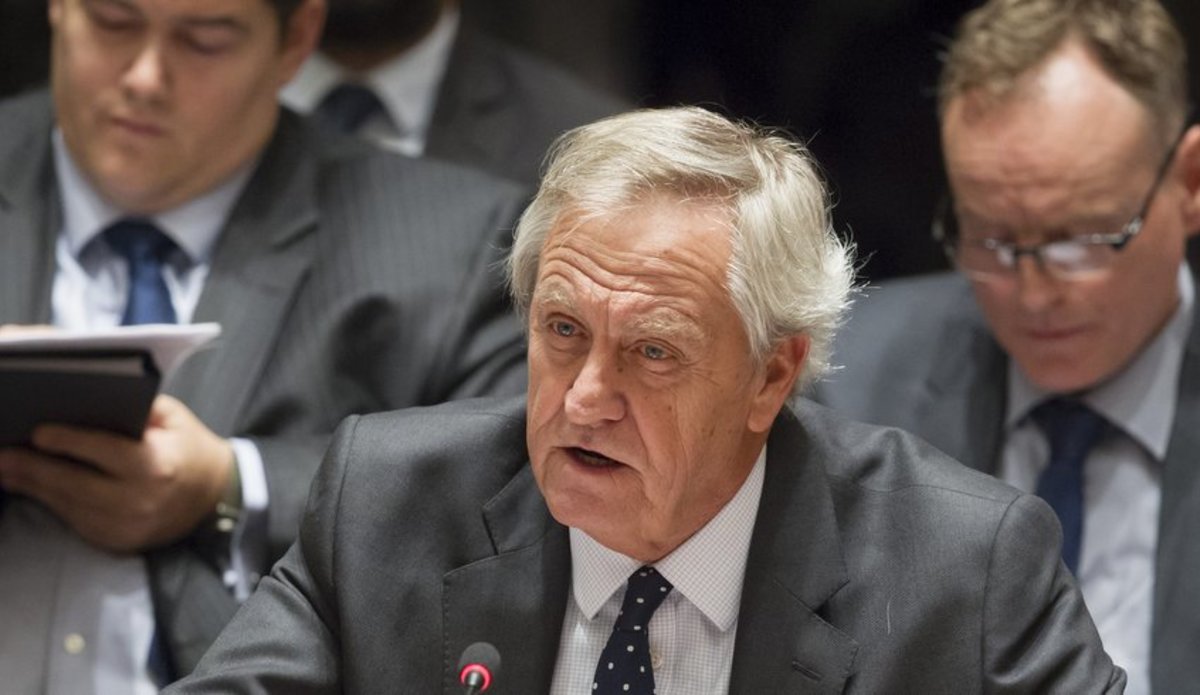Progress toward peace in Afghanistan essential for stability and prosperity, says UN envoy
NEW YORK - Without a peace process, the sustainability and viability of all efforts to bring stability and prosperity to Afghanistan will be called into question, said Nicholas Haysom, the UN Secretary-General’s Special Representative for Afghanistan, in a briefing to the Security Council today.
In 2016, Afghanistan is being as severely tested as it was in 2015 in managing its political, economic and security challenges, said Mr. Haysom, who is also the head of the UN Assistance Mission in Afghanistan (UNAMA).
To survive 2016, said the envoy, the National Unity Government will need to overcome a contracting economy, an intensifying insurgency and an increasingly divided political environment.
“In the face of calls for reviewing the current political framework, the United Nations and the international community have made it clear to all stakeholders that it stands firmly behind the National Unity Government,” said Mr. Haysom.
However, the UN envoy went on to say that in the coming months the international community will make critical decisions on the level and type of assistance it will provide to Afghanistan.
“As the country continues to rely on external funding sources for 69 per cent of government expenditures, failure by the international community to pledge a medium-term commitment to Afghanistan will have a devastating impact, both materially and on the levels of confidence of ordinary Afghans,” he said.
Above all, he stressed, the greatest challenge facing Afghanistan is progress toward a sustainable peace. “Afghans want peace; they deserve peace; but most importantly they need peace,” he stressed, characterizing a successful peace process as one that will require the support of neighbouring countries and the wider region.
“With the increasing regional dimension of terrorism, it will be important for the region to collaborate on a common approach to this shared threat, as well as to act in support of Afghanistan’s peace initiatives,” said the envoy. “We have called, repeatedly, and will continue to call, for nothing less than direct talks between the Taliban and the Afghan Government.”
Whatever the eventual path forward, said the envoy, the United Nations will encourage the full participation of women in any peace process so as to ensure that women’s voices are heard and that their rights are protected.
In addition to outlining the many challenges facing Afghanistan, and the need for a sustainable peace, Mr. Haysom called attention to the numbers of civilians killed and wounded in the conflict in 2015 and into 2016.
“It is no longer sufficient for parties to the conflict to make public statements on the need to avoid civilian casualties,” he said. “They must change the way they conduct the war.”
Mr. Haysom’s remarks follow the Security Council’s adoption of a resolution to renew UNAMA’s mandate for one year, through March 2017. “UNAMA welcomes its refreshed mandate adopted by this Council today,” he said. “And we reassure you of our commitment to the ever more effective discharge of our mandate for the benefit of the people of Afghanistan.”
Read Nicholas Haysom's briefing to the UN Security Council.
Read a transcript of Nicholas Haysom's remarks at a media stakeout.
Read Security Council Resolution 2274 (2016).
 UN
UN







